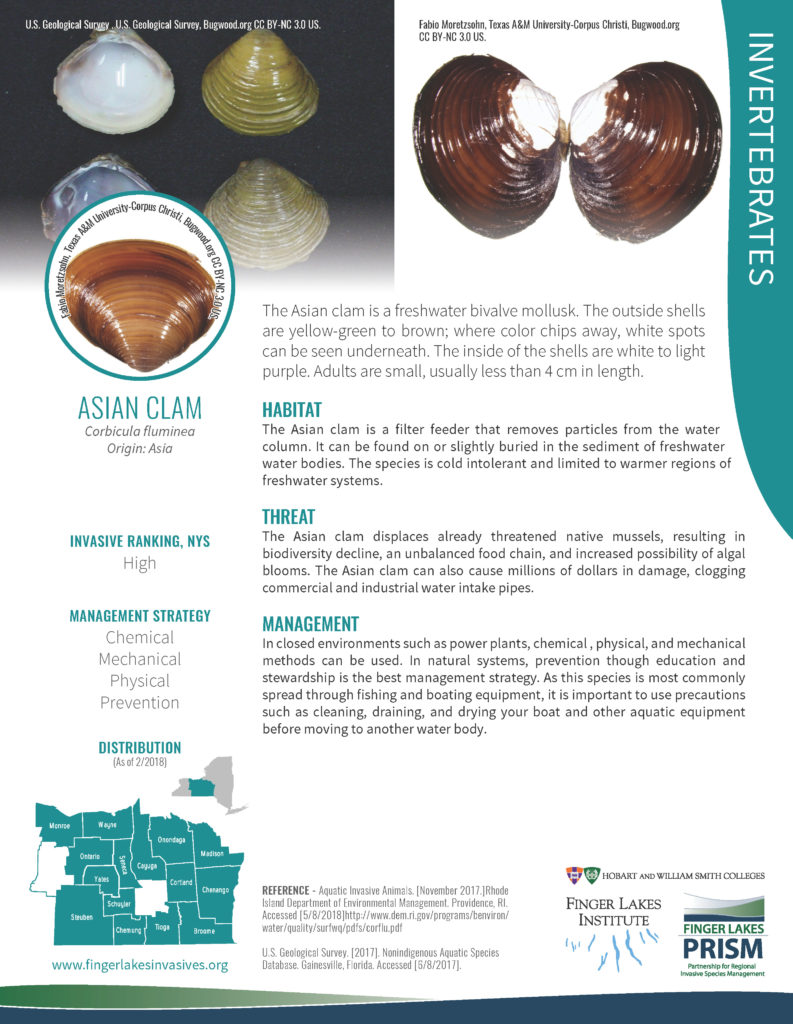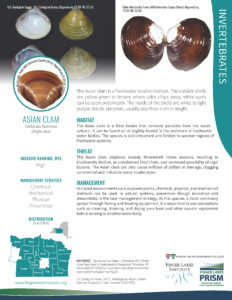Asian Clam
Common Name: Asian clam
Scientific Name: Corbicula fluminea
Origin: Asia
Description
Asian clam is a freshwater bivalve mollusk. The outside shells are yellow-green to brown, with elevated concentric rings. If the color chips away, white spots can be seen underneath. The inside of the shells may be light purple. Adults are small, usually less than 1 1/2″ in length.
Habitat
This species is found in freshwater throughout the U.S. It is hardy and persistent and can withstand many aquatic habitats, often preferring the warmer, shallower areas near the shore.
Threat
Asian clam displaces highly vulnerable native mollusks that are often already threatened, reduces biodiversity, alters the food chain, may cause algae blooms, damages equipment, and clogs industrial and commercial water systems. They are fast growing and can spread quickly. Able to self-fertilize, one clam can release roughly 350 offspring daily if conditions permit.
Management
In closed environments such as power plants, chemical and mechanical methods can be used. Management is very difficult and labor intensive in a natural aquatic system. Stopping aquarium dumping and live food releases, and cleaning boats and bait buckets are critical to preventing its spread.
Distribution: View Map
This organism is found in the Finger Lakes.







